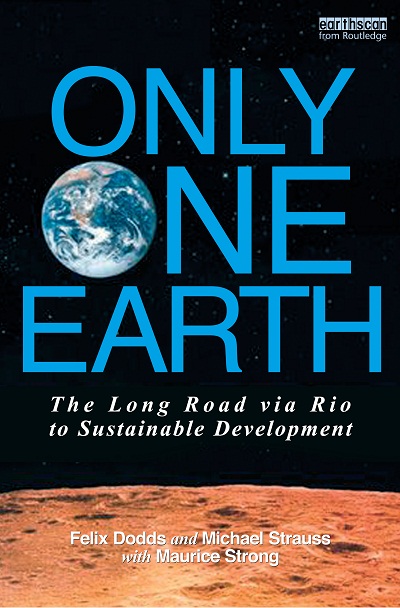Rio Summit: World Leaders Urged To Recognise Environmental Concerns When Tackling Economy
World leaders need to recognise the importance of the environment in tackling the problems facing the global economy, campaigners urged today.
And they need to send a clear signal to businesses to give them the confidence to invest in green technology such as offshore wind and vehicles with low emissions in order to boost struggling economies.
The call comes as ministers from around the world gather for a key environmental summit in Rio de Janeiro, Brazil, where the “green economy” will be one of the main areas for discussion.
It is also hoped ministers will agree on a plan to draw up new “sustainable development goals” to tackle issues such as providing food, water and clean energy for people around the world.
But negotiations in the run up to the conference, which marks 20 years since the original Earth Summit that set the environmental agenda for two decades, have stuttered.
And with European countries gripped by the Eurozone crisis and many world leaders staying away from the conference, there are concerns about how much can be achieved.
Friends of the Earth’s director of policy and campaigns Craig Bennett said the ongoing financial crisis provided an opportunity for leaders to recognise that the mess economies were in was due to a lack of regulation and that the system should not just be put back as it was.
He called for the conference to define a “good” green economy that was sustainable and worked for local communities, not just providing cover for business as usual, and for progress to be made on providing genuinely clean energy for all.
And he said: “If governments were to give long, loud and legal messages about what kind of investments are going to do well in the future, business will invest. The money is there, the confidence is not there.”
Environmentalists see developing clean technology and services as a way of setting the world on a more sustainable path while tackling the recession.
Despite the UK’s poor economic performance last year, the country’s green economy grew by 4.7% to be worth £122 billion, and added more than 25,000 new jobs to take employment in the sector to almost a million people, a recent report for the Government showed.
But Mr Bennett warned: “There’s a whole kind of failed ideologically driven rhetoric coming out from politicians like George Osborne, that regulation is getting in the way of the economy.
“But it’s his failed ideological rhetoric that’s getting in the way of the economy. Their thinking is stuck in the 1970s and 1980s, and we need them to get with the plot for the 21st century not the 1970s.
“That’s what we hope for from Rio, whether we get it or not remains to be seen.”
Lasse Gustavsson, executive director of conservation at WWF International, said: “If world leaders are really worried about the economy, they should be at Rio+20. Instead of being here and investing in the future, Europeans are staying away and investing in debt.”
The wildlife charity said global economic recovery will be based on providing food, water and energy for all people, with jobs created in sectors such as agriculture, manufacturing and tourism based on nature and wildlife.
“If our natural resource base collapses, the global economy collapses with it,” he warned, urging countries to engage in the conference as the best investment in the future.
Ahead of the meeting, leading scientists and the United Nations Environment Programme (Unep) warned that the world was on an unsustainable path that could lead to extreme and irreversible changes to the planet that threatened the resources humans rely on to survive.
Deputy Prime Minister Nick Clegg, who is going to the meeting in Rio, said that long-term wealth can only be delivered by conserving natural resources and “living within our means” and warned countries not to sacrifice the environment in the name of growth.
Environment Secretary Caroline Spelman, who is also attending the summit, said she thought the most tangible outcome could be agreement to negotiate a set of sustainable development goals, which would drive progress on tackling poverty and addressing environmental problems in the same way as Millennium Development Goals had.
She said she hoped to see goals that would help produce food to feed an extra billion people in 13 years, at less cost to the environment, and secure clean and affordable water supplies for everyone.
Article originally appeared in The Huffington Post.

